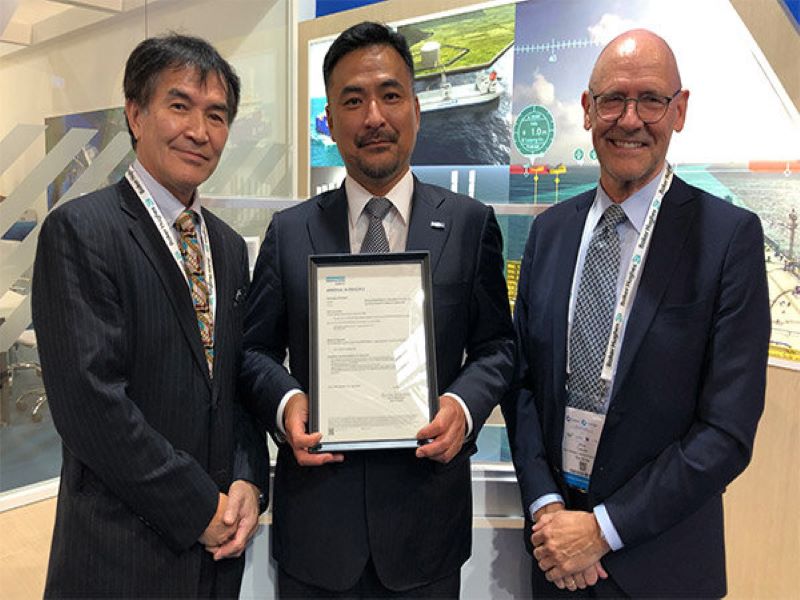
Mitsui OSK Lines (MOL) and Mitsubishi Shipbuilding (MHIMSB) have secured approval in principle (AiP) from Norwegian classification society DNV for their new liquefied CO₂ (LCO₂) carrier design.
The companies concluded their joint concept study for a 50,000m³-class vessel last November.
The vessel, which underwent a Hazard Identification Study (HAZID), integrates tank pressure specifications for larger ships in the future.
Both entities will incorporate the expertise of Larvik Shipping, a MOL-invested firm that has handled LCO₂ carriers in Europe for more than three decades.
The implementation of the HAZID was in line with actual operations.
To advance the joint development project, the companies will use their complementary and respective capabilities.
How well do you really know your competitors?
Access the most comprehensive Company Profiles on the market, powered by GlobalData. Save hours of research. Gain competitive edge.

Thank you!
Your download email will arrive shortly
Not ready to buy yet? Download a free sample
We are confident about the unique quality of our Company Profiles. However, we want you to make the most beneficial decision for your business, so we offer a free sample that you can download by submitting the below form
By GlobalDataFurthermore, the partnership will develop several technologies, including LCO₂ vessels, that will play a crucial role in building a carbon capture, utilisation and storage (CCUS) value chain.
MOL chief technical officer and executive officer Makoto Yamaguchi said: “The AiP award is an important milestone in our Group strategy to achieve net zero GHG emissions by 2050.
“Through this demonstration project, we will further accelerate our R&D initiatives on liquefied CO₂ transport, contributing to the realisation of a low- and de-carbonised society.”
In a separate move, DNV introduced a new continuous remote compliance verification system, dubbed NAUTConnect, for electronic navigational systems and integrated network equipment.
The system is said to cover on-board systems and data collection infrastructure, onshore systems and data standards, and procedures for system health monitoring and compliance verification.
Among the major industry contributors are navigation systems manufacturer Kongsberg Maritime (KM) and its digital unit, Kongsberg Digital (KDI).
Norway-based Hurtigruten Coastal is one of the various shipowners that piloted the offering.







